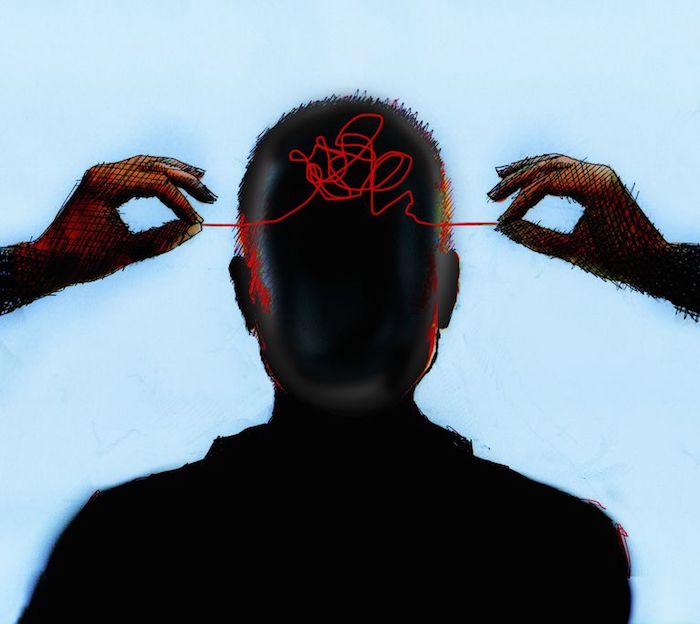It’s a different road for everyone, but these suggestions could help…
The death of a loved one is one of the hardest things an individual can go through, and there’s no set formula for how their grief will manifest itself.
Bereavement affects everyone differently, and at times it can leave you feeling bereft, alone, hopeless or angry.
The Coping with Bereavement guide from older people’s charity Independent Age reminds us that: “There’s no one way of grieving – everyone deals with bereavement differently. There’s no expected way you should be feeling or set time it will take for you to feel more like yourself again.”
And it’s not just our emotions that are in disarray after the death of a loved one, our bodies feel it, too. Like any other form of emotional stress, the body has a physical reaction which can further add to the sufferer’s distress.
With guidance from the team at Independent Age, here are the physical, emotional and behavioural symptoms of grief. It can be reassuring to know that what you are experiencing is normal, and that the symptoms of grief can be far-ranging. However, if you are worried about anything you are thinking or feeling, including physical symptoms, it’s a good idea to speak to your GP.
Physical symptoms of grief
People are often less aware of these, but grief can affect your body just as much as it can affect your emotions. This is related to the stress of the situation. Everyone is affected differently, but you might experience:
- Exhaustion.
- Breathlessness.
- Aches and pains, such as chest pain and headaches.
- Shaking and increased heart rate.
- Feeling sick.
- Upset stomach.
- Oversensitivity to noise and light.
- Skin problems and sensitivity.
- Lower resistance to illness in general.
- Panic attacks.
Emotional feelings of grief
Your feelings can be chaotic after a death and this can be overwhelming and sometimes frightening. However, this is usually normal and intense feelings tend to ease over time. Emotional symptoms can include:
- Anxiety – including worries about your own mortality.
- Relief – for example if someone died after a long illness.
- Irritability – although family can be a source of support when you’re grieving, family quarrels are not uncommon after a death.
- Feelings of detachment – these are particularly common in the period just after the death. You might feel detached from your life, but these feelings usually fade over time.
- Depression and loneliness.
- Troubling thoughts.
Behavioural impact of grief
Bereavement can also affect your behaviour. Again, you might expect some of these effects, such as being very tearful, but not others. You might experience:
- Restlessness or hyperactivity – this can be a coping mechanism.
- Inability to concentrate – you might be preoccupied with the death and go over and over what happened.
- Disturbed sleep or nightmares – nightmares and flashbacks can be more common if someone has died through suicide or other traumatic death.
- Loss of appetite or comfort eating – which can of course also cause physical changes to your weight.
WHAT CAN YOU DO TO HELP EASE GRIEF?
The Independent Age guide explains that it’s really important to be kind to yourself and do things that help you. This doesn’t mean ignoring your grief – allow yourself to feel sad and give yourself time to grieve and remember the person in your own way.
Allow yourself to also grieve for any secondary losses you may experience after a death, for example, having to move out of the family home or no longer having to maintain a role such as mother, wife, career etc.
1. Talk about it
Talking to others about the person who has died, your memories of them, and how you’re feeling can be very helpful. You might want to talk to:
- Other people who knew the person you have lost
- A GP
- Counsellor – more info here
- Helpline adviser – more info here
-
New research from Independent Age has revealed that almost half (44%) of the sandwich generation (40-64 year olds) do not feel comfortable talking to their parents about death. However, according to the older generation surveyed (over 65s), 58% think it’s important to open up about death. Janet Morrison, Chief Executive of Independent Age says:
“It’s understandable that many people struggle to talk about death and final wishes. As a nation, we need to start embracing these conversations and promote a positive change in how we perceive and talk about this subject. We don’t expect this to change overnight, but it’s time to take action, be brave and talk about death.”
2. Books that might help
Many people find it consoling to read about other people’s experiences of grief. This can help us to process our grief and feel less alone in our experience. This could be particularly valuable in the early days after a death, when you might not feel ready to talk to others.
You can try:
1. Cruse Bereavement Care – Recommended reading list
2. The Compassionate Friends – Recommended reading list. The Compassionate Friends also operates a postal lending library.
3. Your local library
4. Your GP may also be able to recommend self-help resources.
5. Overcoming Grief, part of the Overcoming self-help series, endorsed by the Royal College of Psychiatrists.
3. Take practical steps
It’s easy to stop caring for yourself when you’re grieving, but a few simple things can help to make this period easier:
- Try to get plenty of sleep.
- Eat healthily.
- Be kind to yourself and don’t put pressure on yourself to feel better too quickly.
- Avoid numbing the pain too much with things like alcohol, which won’t help you in the long run.
- Try to keep to a routine – it might feel easier to stop doing things and seeing people, but in the long run this can make you feel worse.
- Try returning to activities you enjoyed before you were bereaved such as going for a walk, listening to music or swimming.
- Find small things that help you feel better, like buying yourself flowers.
Complete Article ↪HERE↩!



